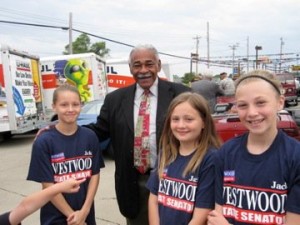
Today is Election Day in the United States. How are you voting? I don’t mean for which candidate or party are you voting, but how are you voting? Enthusiastically? Reluctantly? Cynically?
During this election season, I have been reading (very slowly) through the book of Jeremiah —not because of an intentional connection to politics, but because our Faculty Ministry team has been took a close look at Jeremiah 29 over the summer, particularly God’s word to Judah as the Babylonians were about to take the nation into exile:
Build houses and settle down; plant gardens and eat what they produce. Marry and have sons and daughters; find wives for your sons and give your daughters in marriage, so that they too may have sons and daughters. Increase in number there; do not decrease. Also, seek the peace and prosperity of the city to which I have carried you into exile. Pray to the Lord for it, because it prospers, you too will prosper. (Jeremiah 29:5-7)
In the book of Jeremiah, we see a mix of the spiritual and the secular. It’s impossible to draw strong distinctions between “religious” and “secular” categories. Jeremiah’s prophecies of judgment relate to the political and military forces at work in Judah and the region, and the above command from God deals largely with “secular” concerns: housing, food, children, family.
On one level, these words of God must have been very encouraging. It meant they weren’t going to die; they were going to have children; they would have some semblance of a normal life once the siege and exile was over. They would even be able to pray to the Lord, instead of being forced to adopt the religion of the Babylonians.
The words, though, can also be taken as quite discouraging. The kingdom of Judah wasn’t going to be coming back anytime soon —if at all. They would live out their days among a pagan people, far from the promised land. Perhaps most discouraging, if one was of a vengeful mindset, their prosperity would depend on the fortunes of their enemies.
James Davison Hunter, in To Change the World, counsels Christians to hold politics “at arm’s length” —indeed, to do so with all expressions of worldly power:
…the way in which Christians assimilate to the political culture is just an extension of its assimilation to all of culture and the ways of life it lays down as normal. Its lack of critical distance and reflection about politics is an extension of its failure to critically reflect about the rest of the world they inhabit.
The same could be said regarding how Christians uncritically accept —or hypercritically reject —the world of academia, which has a politics all of its own.
Today is Election Day. How are you voting?
The former Associate Director for the Emerging Scholars Network, Micheal lives in Cincinnati with his wife and three children and works as a web manager for a national storage and organization company. He writes about work, vocation, and finding meaning in what you do at No Small Actors.

Leave a Reply